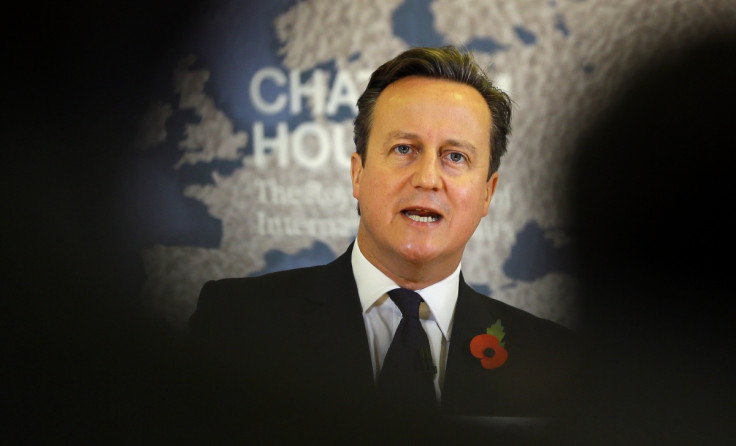War on Isis: Read David Cameron's case for UK air strikes against jihadists in Syria

David Cameron has published his full response to the Foreign Affairs Committee ahead of his major speech in the House of Commons at 10.30am GMT on 26 November. He will make the case for UK air strikes on Islamic State (Isis) targets in Syria in the wake of the terror attacks in Paris. You can read the prime minister's introduction below and follow the link to read the full report.
"Whether or not to use military force is one of the most significant decisions that any government takes. The need to do so most often arises because of a government's first duty: the responsibility to protect its citizens. Decisions to use force are not to be taken lightly. It is right that Parliament, on behalf of the people, asks difficult questions and holds the Government to account. For its part, it is important that the Government should listen and learn. But it is also vital that the Government can act to keep this country safe.
Throughout Britain's history, we have been called on time and again to make the hardest of decisions in defence of our citizens and our country. Today one of the greatest threats we face to our security is the threat from ISIL. We need a comprehensive response which seeks to deal with the threat that ISIL poses to us directly, not just through the measures we are taking at home, but by dealing with ISIL on the ground in the territory that it controls. It is in Raqqa, Syria, that ISIL has its headquarters, and it is from Raqqa that some of the main threats against this country are planned and orchestrated.
We must tackle ISIL in Syria, as we are doing in neighbouring Iraq, in order to deal with the threat that ISIL poses to the region and to our security here at home. We have to deny a safe haven for ISIL in Syria. The longer ISIL is allowed to grow in Syria, the greater the threat it will pose. It is wrong for the United Kingdom to sub-contract its security to other countries, and to expect the aircrews of other nations to carry the burdens and the risks of striking ISIL in Syria to stop terrorism here in Britain.
That is why I believe that we should now take the decision to extend British airstrikes against ISIL into Syria, as an integral part of our comprehensive strategy to degrade ISIL and reduce the threat it poses to us. At the same time, we must close down the ungoverned space in Syria that ISIL is exploiting, by working round the clock to bring about a political resolution to the war there. That means putting Britain's full diplomatic weight, as a full member of an international coalition, behind the new political talks – the Vienna process.
It means working through these talks to secure a transition to an inclusive Government in Syria that responds to the needs of all the Syrian people and with which the international community could co-operate fully to help restore peace and stability to the whole country. It means continuing to support the moderate opposition in Syria, so that there is a credible alternative to ISIL and Assad.
It means using our aid budget to alleviate the immediate humanitarian suffering. It means insisting, with other countries, on the preparation of a proper stabilisation and reconstruction effort in Syria once the conflict has been brought to an end. And it means continuing, and stepping up, our effort here at home to counter radicalisation.
We must pursue all these tracks in parallel. As the threat from ISIL to our national security grows, we must take action - recognising that no course of action is without risk, but that inaction – not dealing with ISIL at source – also carries grave risk. We have a comprehensive overall strategy in place to tackle the ISIL threat globally.
This document sets out how extending our military contribution to Coalition operations in Syria would contribute both to our aim of reducing the ISIL threat to the UK and to delivering our objectives in Syria. The second part of this response to the Foreign Affairs Committee addresses directly the seven questions and the risks which they identify."
© Copyright IBTimes 2025. All rights reserved.





















